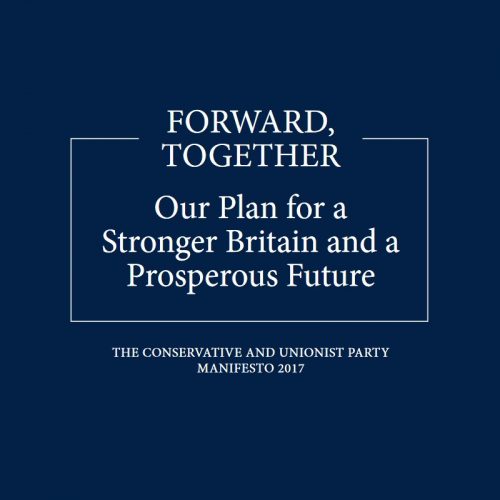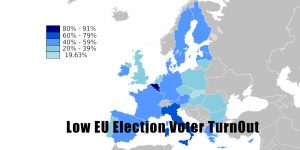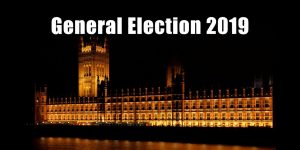A Strong And United Nation In A Changing World is part of the Conservative Parties 2017 General Election Manifesto.
Conservative Manifesto 2017 PDF Format
Conservative Manifesto 2017 – A Strong And United Nation In A Changing World
Theresa May’s Conservatives will deliver
- The best possible deal for Britain as we leave the European Union delivered by a smooth, orderly Brexit.
- A strong and stable Union, with no divisive Scottish referendum at this time.
- A United Kingdom Shared Prosperity Fund, taken from money coming back to the UK as we leave the EU, to reduce inequalities between communities across our four nations.
- Global leadership on development, backed by spending 0.7 per cent of our national income with new rules to spend it more effectively.
- Strong defence, meeting our NATO target of at least 2 per cent of GDP and increasing spending by at least half a per cent more than inflation every year.
- Security from crime and terrorism, backed by a new national infrastructure police force, a stronger response to white collar crime and our world-leading counter-terrorism strategy.
The United Kingdom is embarking upon another era in our centuries-old story. We are leaving the European Union. We want to ensure our departure is smooth and orderly and to agree a deep and special partnership with the 27 remaining member states.
In leaving the European Union, we have chosen a truly global role for Britain. To strike trade deals with old friends and new partners and take a leading position in the world to defend British interests, we must be strong and united.
This begins with our determination to defend the integrity of the United Kingdom and to strengthen the Union, bringing the peoples of the United Kingdom together.
OUR PRECIOUS UNION
We are a United Kingdom, one nation made of four – the most successful political union in modern history. Its very existence recognises the value of unity – England, Northern Ireland, Scotland and Wales achieve less as two, three, or four, than as the United Kingdom together. This unity between our nations and peoples gives us the strength to change things for the better, for everyone, with a scale of ambition we simply could not possess alone.
The settlement governing these islands has changed profoundly in the last twenty years. Significant decision-making have been devolved to the parliament in Scotland and assemblies in Wales and Northern Ireland. Devolved administrations in Edinburgh, Cardiff and Belfast exercise greater powers than equivalent governments elsewhere in the democratic world. In England, we have given considerable powers to city mayors and combined authorities, while local councils now have greater control of the taxes they collect.
This positive evolution of our constitution has given a voice to people who felt distant from the centre of power, and responsibility to people for their own part of our great country. We will continue to work in partnership with the Scottish and Welsh governments and the Northern Ireland Executive, in a relationship underpinned by pooling and sharing resources through the Barnett Formula. We will respect the devolution settlements: no decision-making that has been devolved will be taken back to Westminster. Indeed, we envisage that the powers of the devolved administrations will increase as we leave the EU. However, we can still do more for the people of Scotland, Wales and Northern Ireland.
The United Kingdom Government has in the past tended to ‘devolve and forget’. This Conservative government will put that right. We want the UK Government to be a force for good across the whole country.
So we will be an active government, in every part of the UK. We will work closely with the Northern Ireland Executive, the Scottish and Welsh governments, and the new devolved authorities in England, for the benefit of all our people – but that will not be the limit of our actions in the four nations. We are ambitious for everyone in Britain and will leave no-one behind in our efforts to spread opportunity and prosperity throughout the United Kingdom.
England
This Conservative government has devolved more power to English local authorities, closer to local people, than any previous government in over a century: across England, newly elected mayors, combined authorities, local councils and local enterprise partnerships are being empowered to improve local growth and public services. We will continue to give local government greater control over the money they raise and address concerns about the fairness of current funding distributions.
With devolution now established in London and other parts of England, we will consolidate our approach, providing clarity across England on what devolution means for different administrations so all authorities operate in a common framework. We will support those authorities that wish to combine to serve their communities better. For combined authorities that are based around our great cities, we will continue to support the adoption of elected mayors, but we will not support them for the rural counties.
Scotland
The Scottish Parliament has become the most powerful parliament of its kind in the world, with extensive powers over taxation and welfare. It was the Conservative and Unionist Party that delivered the 2012 and 2016 Scotland Acts, and only the Conservative and Unionist Party can deliver further powers and the best possible deal for Scotland as we leave the European Union.
The United Kingdom has voted to leave the European Union but some would disrupt our attempts to get the best deal for Scotland and the United Kingdom with calls for a divisive referendum that the people of Scotland do not want. We have been very clear that now is not the time for another referendum on independence. In order for a referendum to be fair, legal and decisive, it cannot take place until the Brexit process has played out and it should not take place unless there is public consent for it to happen. This is a time to pull together, not apart.
Scotland’s economic growth has lagged behind the rest of the United Kingdom in recent years. The Scottish Government has the tools to drive economic growth in Scotland but we take seriously our duty to secure prosperity for the whole of the United Kingdom.
We will, therefore, take concerted action to help secure the long-term sustainability of the Scottish economy. Scotland and Scottish industries will be central to our industrial strategy.
We will continue our investment in capital and infrastructure projects in Scotland. Building on the City and Growth deals we have signed across Scotland, we will bring forward a Borderlands Growth Deal, including all councils on both sides of the border, to help secure prosperity in southern Scotland. We will protect the interests of Scottish farmers and fishermen as we design our new UK farming and fisheries policy. And as we develop our new trade policies, we will pay particular attention to using the United Kingdom’s muscle to promote Scottish exports around the world.
Wales
The Conservative Party has a proud record of promoting Welsh culture, helping economic growth and supporting devolution in Wales. The 2017 Wales Act, passed by a Conservative government, transfers significant new powers to the National Assembly for Wales and the Welsh Government.
Wales plays a crucial role in our modern industrial strategy, in the promotion of growing industries in Wales and in the additional powers handed to Welsh local authorities and businesses to promote local growth. Welsh businesses will be central to our new trade and export policies, and our investment in improved infrastructure will help Welsh companies benefit even more from the UK single market than they do now. We will modernise the railway infrastructure across Wales, including new and improved stations, and explore ways to harness Welsh natural resources for the generation of power.
We will build on the Cardiff Capital region and Swansea Bay City region deals, and bring forward a North Wales Growth Deal, connecting north Wales with northern England. We will work with the Welsh Government to encourage further cross-border working, ensuring that the border between England and Wales does not become a barrier to business, education or communities. We will foster opportunities between cities in Wales and the rest of the UK, such as linking economic development between Cardiff, Newport and Bristol. We will protect the interest of Welsh farmers as we design our new UK farming policy and work with the devolved administrations to ensure the strength of the Welsh brand is maintained.
We will continue to support S4C as a part of a UK broadcasting structure and in its key role promoting the Welsh language, which a Conservative government first protected.
Northern Ireland
Our steadfast belief remains that Northern Ireland’s future is best served within a stronger United Kingdom.
Our commitment to the 1998 Belfast Agreement and its successors, together with the institutions they establish, is undiminished. The next Conservative government will therefore work to re-establish a strong, stable and inclusive executive at the earliest opportunity. We will uphold the essential principle that Northern Ireland’s future should only ever be determined by democracy and consent.
A Conservative government will work closely with an incoming executive to strengthen the economy even further, to improve productivity, reduce public sector dependency and promote Northern Ireland as a location for inward investment. We remain committed to the devolution of Corporation Tax powers subject to the executive demonstrating fiscal stability.
As we leave the European Union we recognise Northern Ireland’s unique circumstances and will seek to ensure that Northern Ireland’s interests are protected.
While the number of terror attacks from dissident republican terrorists has fallen from forty in 2010 to four in 2016, the threat they pose remains severe and the need for vigilance paramount. We will continue to confront and combat those who use violence, threats and intimidation, providing the fullest possible support to the Police Service of Northern Ireland and other agencies in their work to keep the public safe and secure.
A Conservative government will continue to work for the full implementation of the 2014 Stormont House and 2015 Fresh Start Agreements. This includes new bodies for addressing the legacy of the past in fair, balanced and proportionate ways which do not unfairly focus on former members of the Armed Forces and the Royal Ulster Constabulary.
The immense contribution of the security forces during the troubles should never be forgotten. We will reject any attempts to rewrite history which seek to justify or legitimise terrorism.
Shared institutions of Union
For too long, power in Britain has been centred in London. This means opportunity has centred in London too. It is time major cities around Britain shared in the government of the United Kingdom. For our civil service and major cultural bodies to claim to be UK institutions, they need to represent and be present across our whole United Kingdom. It is also wrong that while some of our major cultural institutions have made efforts to gain a presence across the UK, others have not.
We will put this right. Starting with the UK Government’s arm’s-length bodies, we will start moving significant numbers of UK Government civil servants and other public servants out of London and the south-east to cities around the UK. We will ensure that senior posts move too, so that operational headquarters as well as administrative functions are centred not in London but around Britain. And we will do so in a way that encourages the development of new clusters of public services, private businesses and, where appropriate, universities.
We will proceed on the same basis with the arts and cultural organisations that give our United Kingdom such strength. Channel 4 will remain publicly owned and will be relocated out of London, and we will work with the nation’s most eminent museums and galleries to ensure their works and expertise are shared across the country.
United Kingdom Shared Prosperity Fund
We believe in one nation – in helping every part of our country share in the prosperity and opportunity of our great United Kingdom. Yet there is much to do. Current EU-wide structural funding was designed to tackle disparities but it is expensive to administer and poorly targeted. As we leave the European Union, we must look at how we can better reduce and eliminate these inequalities.
We will use the structural fund money that comes back to the UK following Brexit to create a United Kingdom Shared Prosperity Fund, specifically designed to reduce inequalities between communities across our four nations. The money that is spent will help deliver sustainable, inclusive growth based on our modern industrial strategy. We will consult widely on the design of the fund, including with the devolved administrations, local authorities, businesses and public bodies. The UK Shared Prosperity Fund will be cheap to administer, low in bureaucracy and targeted where it is needed most.
LEAVING THE EUROPEAN UNION
Following the historic referendum on 23rd June 2016, the United Kingdom is leaving the European Union. Only the Conservative Party, under Theresa May’s strong and stable leadership, can negotiate the best possible deal for our country. In her Lancaster House Speech, the prime minister laid out the twelve principles she intends to follow in seeking a new deep and special partnership with the European Union. We have explained our approach in the White Paper on the United Kingdom’s Exit from, and a new relationship with, the European Union, during the passage of the European Union (Notification of Withdrawal) Act, in the prime minister’s letter to the president of the European Council invoking Article 50, and in the Great Repeal Bill White Paper.
We want to agree a deep and special partnership with the European Union. This partnership will benefit both the European Union and the United Kingdom: while we are leaving the European Union, we are not leaving Europe, and we want to remain committed partners and allies to our friends across the continent.
The negotiations will undoubtedly be tough, and there will be give and take on both sides, but we continue to believe that no deal is better than a bad deal for the UK. But we will enter the negotiations in a spirit of sincere cooperation and committed to getting the best deal for Britain. We will make sure we have certainty and clarity over our future, control of our own laws, and a more unified, strengthened United Kingdom. We will control immigration and secure the entitlements of EU nationals in Britain and British nationals in the EU. We will maintain the Common Travel Area and maintain as frictionless a border as possible for people, goods and services between Northern Ireland and the Republic of Ireland. Workers’ rights conferred on British citizens from our membership of the EU will remain. We will pursue free trade with European markets, and secure new trade agreements with other countries. We want to work together in the fight against crime and terrorism, collaborate in science and innovation – and secure a smooth, orderly Brexit. And we will protect the democratic freedom of the people of Gibraltar and our overseas territories to remain British, for as long as that is their wish. The final agreement will be subject to a vote in both houses of parliament.
As we leave the European Union, we will no longer be members of the single market or customs union but we will seek a deep and special partnership including a comprehensive free trade and customs agreement. There may be specific European programmes in which we might want to participate and if so, it will be reasonable that we make a contribution. We will determine a fair settlement of the UK’s rights and obligations as a departing member state, in accordance with the law and in the spirit of the UK’s continuing partnership with the EU. The principle, however, is clear: the days of Britain making vast annual contributions to the European Union will end.
We want fair, orderly negotiations, minimising disruption and giving as much certainty as possible – so both sides benefit. We believe it is necessary to agree the terms of our future partnership alongside our withdrawal, reaching agreement on both within the two years allowed by Article 50 of the Treaty on European Union.
Repatriating EU law to the United Kingdom
We will enact a Great Repeal Bill. Our laws will be made in London, Edinburgh, Cardiff and Belfast, and interpreted by judges across the United Kingdom, not in Luxembourg. The bill will convert EU law into UK law, allowing businesses and individuals to go about life knowing that the rules have not changed overnight. This approach means that the rights of workers and protections given to consumers and the environment by EU law will continue to be available in UK law at the point at which we leave the EU. The bill will also create the necessary powers to correct the laws that do not operate appropriately once we have left the EU, so our legal system can continue to function correctly outside the EU. Once EU law has been converted into domestic law, parliament will be able to pass legislation to amend, repeal or improve any piece of EU law it chooses, as will the devolved legislatures, where they have the power to do so.
As powers return from the EU, we will be able to determine the level best placed to take decisions on these issues, ensuring that power sits closer to the people of the United Kingdom than ever before. We expect that the outcome will be a significant increase in the decision-making power of each devolved administration but we must also ensure that as we leave the EU no new barriers to living and doing business within our own union are created. In some areas, this will require common UK frameworks. We will work closely with the devolved administrations to deliver an approach that works for the whole of the United Kingdom and reflects the needs and individual circumstances of Scotland, Wales and Northern Ireland.
As well as the Great Repeal Bill, we will bring forward a number of additional bills to ensure that when we have left the EU there is a clear statutory basis for United Kingdom authorities to exercise powers that are currently exercised through EU law and institutions.
We will not bring the European Union’s Charter of Fundamental Rights into UK law. We will not repeal or replace the Human Rights Act while the process of Brexit is underway but we will consider our human rights legal framework when the process of leaving the EU concludes. We will remain signatories to the European Convention on Human Rights for the duration of the next parliament.
GLOBAL BRITAIN
The United Kingdom is a global nation. Our history is a global history; our future must be global too. We believe Britain should play an active, leading role in the world. Not because it is our right or inheritance, but because our leadership in the world is the surest way to defend and advance the interests of the British people, and to extend around the world those values that we believe to be right.
The United Kingdom is already a global power. We have a leading diplomatic service and one of the largest overseas development budgets in the world. Our armed forces are respected around the world and enable us to project power globally. Our global businesses and London’s position as the global centre of finance make us more interconnected with the global economy than any other comparable nation.
Britain is already a significant influence for good around the world. Our aid is giving millions an education and an opportunity to rise out of poverty. Our naval vessels are stopping the vile trade in people and in drugs. We are at the forefront of action against global climate change.
We can and should do more, not just because acting as a force for good is an important end in itself but because the result will be greater peace and prosperity for the British people. We will continue to champion British values around the globe: freedom, democracy, tolerance and the rule of law. We will be the world’s foremost champion of free trade. We will expand our global efforts to combat extremism, terror, and the perpetration of violence against people because of their faith, gender or sexuality. We will continue to lead international action against climate change, and the degradation of habitat and loss of species. We will continue to lead a global campaign for the education of women and girls, which is the key to progress in so many countries. We will lead the fight against modern slavery, just as we overcame the trade in slaves two hundred years ago. We will lead a global effort to close down online spaces for those who abuse children, incite violence or propagate hate speech. We shall lead the world in the hard work to end extreme child poverty and co-ordinate efforts against microbial resistance and emerging tropical diseases. And we will take up leadership in a new arena, where concern is shared around the world: we will be the global leader in the regulation of the use of personal data and the internet.
British leadership in international institutions
The security and prosperity of the United Kingdom is built on the international institutions that we helped to found and will continue to help maintain: the United Nations and the UN Security Council, NATO – the cornerstone of our defence, the Commonwealth, the G20, G7 and the World Trade Organization. We will continue to give strong support to an international order in which rules govern state conduct; in our own behaviour we will support this system and apply it in a principled way. We shall continue to seek to reform multilateral institutions, especially in the way they distribute development funds, so that money is used to greatest effect to protect and help the world’s most vulnerable people.
Global partnerships and alliances
Alongside our proposed deep and special partnership with the European Union, we will maintain the historical, cultural and economic ties that link us to our old friends and allies around the globe. We will build upon our existing special relationship with the United States, and forge new economic and security partnerships that make us more prosperous at home and more secure abroad. We will strengthen our close links with our Commonwealth allies, continuing our mission together to promote democratic values around the world and build on our existing economic relationships to further our common trading interests. We will develop alliances and co-operate more with old friends and new partners.
A global champion of free trade
The United Kingdom will be a global champion for an open economy, free trade, and the free flow of investment, ideas and information. Open and free trade is key to international prosperity, stability and security – it is an essential component of an economy that works for everyone. We believe the UK must seize the unique opportunities it has to forge a new set of trade and investment relationships around the world, building a global, outward-looking Britain.
Promoting British culture around the world
The United Kingdom is home to some of the finest cultural institutions in the world. We will continue to promote those institutions and ensure they have the resources they need to amplify Britain’s voice on the world stage and as a global force for good. We will continue to promote democracy, the rule of law, property entitlements, a free and open media, and accountable institutions in countries and societies across the world.
We will place the BBC World Service and the British Council on a secure footing so they are able to promote the best of British values around the globe and build strong ties between our local communities and other countries.
Leading the world in development
British aid helps millions and is a powerful statement of Global Britain’s place in the world. It protects our interests: by building a safer, healthier, more prosperous world, we can protect our own people from disease, conflict and instability. This is the right ambition for a country with a global outlook, so we will maintain the commitment to spend 0.7 per cent of our gross national income on assistance to developing nations and international emergencies.
We will continue to use our aid budget in alignment with the Sustainable Development Goals, to end extreme poverty, save children’s lives, and provide an education for girls. We will work to end the subjugation and mutilation of women, to combat the brutal slave trade in fellow human beings and to prevent catastrophic environmental degradation. And we will continue to lead global efforts to tackle sexual violence in conflict.
British scientists and inventors have helped to address some of the greatest challenges facing the world’s poorest people. A global Britain should aspire to do even more: we will significantly increase our funding of UK-led medical and technical research into the biggest threats to global health and prosperity.
There are still ways that we can improve the way that taxpayers’ money is used to help the world’s most vulnerable people. We do not believe that international definitions of development assistance always help in determining how money should be spent, on whom and for what purpose. So we will work with like-minded countries to change the rules so that they are updated and better reflect the breadth of our assistance around the world. If that does not work, we will change the law to allow us to use a better definition of development spending, while continuing to meet our 0.7 per cent target.
Reforming asylum
We will ensure Britain remains a place of sanctuary for refugees and asylum seekers. The existing system, however, is geared towards people who are young enough, fit enough, and have the resources to get to Britain, rather than those who are most in need of our help.
Wherever possible, the government will offer asylum and refuge to people in parts of the world affected by conflict and oppression, rather than to those who have made it to Britain. We will work to reduce asylum claims made in Britain and, as we do so, increase the number of people we help in the most troubled regions. We will continue to work with other countries in Europe, and the United Nations, to review the international legal definitions of asylum and refugee status.
We will make sure our councils get the help they need to deal with people as they arrive, and establish schemes to help individuals, charities, faith groups, churches and businesses to provide housing and other support for refugees.
Protecting the global environment
The United Kingdom will lead the world in environmental protection. As Conservatives, we are committed to leaving the environment in better condition than we inherited it. That is why we will continue to take a lead in global action against climate change, as the government demonstrated by ratifying the Paris Agreement. We were the first country to introduce a Climate Change Act, which Conservatives helped to frame, and we are halfway towards meeting our 2050 goal of reducing emissions by eighty per cent from 1990 levels.
We will champion greater conservation co-operation within international bodies, protecting rare species, the polar regions and international waters. We will work with our Overseas Territory governments to create a Blue Belt of marine protection in their precious waters, establishing the largest marine sanctuaries anywhere in the world.
Modern slavery
The UK is a global leader in fighting the evil trade in human beings – both around the world and in our own country – for sex and labour exploitation. As home secretary, Theresa May brought forward the Modern Slavery Act, the first of its kind in Europe, appointed the world’s first anti-slavery commissioner and set up the Modern Slavery Taskforce to bring together the heads of MI5, MI6 and the National Crime Agency to co-ordinate our response to criminal gangs operating across the world.
We now need to go further. We need to focus on the exploitation of vulnerable men, women and children for their labour, people who are moved around our own country and between nations, as if they were not human at all. We will review the application of exploitation in the Modern Slavery Act to strengthen our ability to stop criminals putting men, women and children into criminal, dangerous and exploitative working conditions. And the UK will use its power to push the United Nations and other international bodies to make Modern Slavery a thing of the past.
STRONG DEFENCE IN AN UNCERTAIN WORLD
Our world is full of opportunity but is also riven by conflict, terrorism and threat.
As a global power, we have a responsibility to sustain our fine armed forces so that they can defend the realm, our overseas territories and our interests around the globe. We will play a leading role in NATO and maintain the ability to conduct strike operations, peacekeeping, security missions and the deployment of a joint expeditionary force. We will maintain the overall size of the armed forces, including an army that is capable of fielding a war-fighting division. We shall expand our reach around the world. We will retain the Trident continuous-at-sea nuclear deterrent to provide the ultimate guarantee of our security.
We have the biggest defence budget in Europe and the second largest in NATO. We will continue to meet the NATO commitment to spend at least 2 per cent of GDP on defence and we will increase the defence budget by at least 0.5 per cent above inflation in every year of the new parliament.
The finest servicemen and women
We will attract and retain the best men and women for our armed forces, including by engaging them on a flexible basis. We will protect our brave armed forces personnel from persistent legal claims, which distress those who risk their lives for us, cost the taxpayer millions and undermine the armed forces in the service they give. Under a Conservative government, British troops will in future be subject to the Law of Armed Conflict, which includes the Geneva Convention and UK Service Law, not the European Court of Human Rights. We will strengthen legal services regulation and restrict legal aid for unscrupulous law firms that issue vexatious legal claims against the armed forces. We will introduce better compensation for injured armed forces personnel and the families of those killed in combat.
The best equipment for our armed forces
We plan to invest £178 billion in new military equipment over the next decade, creating high-skilled jobs across the whole country. For the first time in a generation the Royal Navy is growing. We have cut steel on the first of a new fleet of four Dreadnought ballistic missile boats and we will complete the Astute class of hunter-killer submarines. Our two new aircraft carriers will project British military power for the next fifty years: HMS Queen Elizabeth begins sea trials in the summer and HMS Prince of Wales is due to enter active service in 2020. Alongside our new Type 45 destroyers, we will build eight Type 26 anti-submarine frigates and develop our programme for a new class of lighter, general purpose frigates so that by the 2030s we can further increase the size of our fleet. We shall also deliver five Offshore Patrol Vessels.
For the Army we will deliver AJAX armoured vehicles, Apache attack helicopters, new drones, new missile and bomb systems, and better equipment for the Special Forces. The Royal Air Force will receive, with the Fleet Air Arm, the Lightning II strike fighter, as well as new Maritime Patrol Aircraft. Taken together, this is the largest programme of investment in our armed forces for generations.
Supporting our veterans
We will support former members of the armed forces, who were willing to risk their lives for us, as they move into civilian life. We will maintain and strengthen the Armed Forces Covenant. We will help veterans to start new careers by ensuring that the skills and qualifications they gained in service are recognised by civilian employers and by introducing a one year holiday on Employer National Insurance Contributions for firms hiring service personnel after they leave service. We will improve the co-ordination of government services to veterans, including housing, employment and mental health services, by introducing a Veterans Board in the Cabinet Office.
THE HOME OF DEMOCRACY AND THE RULE OF LAW
This election will decide the composition of our parliament, the oldest of all large democracies. The laws that we make form the basis of judgments in our courts, which are respected around the world. This unequalled democracy and legal system is our greatest national inheritance. However, collective faith in our democratic institutions and our justice system has declined in the past two decades. It is the purpose of this Conservative Party, in responding to the historic vote on our membership of the European Union, to re-establish faith in our democracy, and in our democratic and legal institutions.
A flourishing and secure democracy
Our democratic institutions may be ancient but should not be neglected. We will continue to modernise and improve our electoral registration process, making it as accessible as possible so that every voice counts. We will legislate for votes for life for British overseas electors. We will continue with the current boundary review, enshrining the principle of equal seats, while reducing the number of MPs to 600, similar to other
Western democratic chambers. We will retain the first past the post system of voting for parliamentary elections and extend this system to police and crime commissioner and mayoral elections. We will retain the current franchise to vote in parliamentary elections at eighteen. We will repeal the Fixed-term Parliaments Act.
The British public deserves to have confidence in our democracy. We will legislate to ensure that a form of identification must be presented before voting, to reform postal voting and to improve other aspects of the elections process to ensure that our elections are the most secure in the world. We will retain the traditional method of voting by pencil and paper, and tackle every aspect of electoral fraud.
Although comprehensive reform is not a priority we will ensure that the House of Lords continues to fulfil its constitutional role as a revising and scrutinising chamber which respects the primacy of the House of Commons. We have already undertaken reform to allow the retirement of peers and the expulsion of members for poor conduct and will continue to ensure the work of the House of Lords remains relevant and effective by addressing issues such as its size.
Celebrating public service
Our nation is made great by millions of people who work every day to serve the public. Public service is a noble vocation, one which we will celebrate. We want the most committed and capable people to come into public service, and for public services to be motors of social mobility – which is why we are looking at ways to make sure civil service recruitment is as diverse as possible, not only from the perspective of gender and race but social class too.
We will continue to fund schemes to get graduates from Britain’s leading universities to serve in schools, police forces, prisons, and social care and mental health organisations. These programmes are now some of the UK’s largest graduate employers, taking the brightest and best from our universities and using their talents to tackle entrenched social problems. We want to go further. We will provide seed funding for similar schemes to recruit older professionals from other sectors, including those returning to the workplace having cared for children and relatives and those approaching retirement.
We know public services are dependent upon the public servants who run them, which is why we will establish in law the freedom for employees to mutualise, where appropriate, within the public sector. We will review the honours system to make sure it commands public confidence, rewards genuine public service and that recipients uphold the integrity of the honours bestowed.
Reforming the justice system
The last seven years have seen historic falls in crime and improvements in public safety.
We will build on that record.
A strong criminal justice system requires a good legal system. We cherish our strong and independent judiciary. Our courts and judiciary are respected as the finest in the world. Legal services are a major British export and underpin our professional services sector. We will continue to modernise our courts, improving court buildings and facilities and making it easier for people to resolve disputes and secure justice.
We will take action to make it harder for people to enter the country if they have a criminal conviction and will implement satellite tracking for every foreign national offender subject to an outstanding deportation order or deportation proceedings.
Standing up for victims
We will ensure that victims of crime are supported at every stage of the criminal justice system. We will enshrine victims’ entitlements in law, making clear what level of service they should expect from the police, courts and criminal justice system. We will ensure that child victims and victims of sexual violence are able to be cross-examined before their trial without the distress of having to appear in court. Publicly-funded advocates will have specialist training in handling victims before taking on serious sexual offences cases. To ensure that the pain and suffering of the Hillsborough families over the last twenty years is not repeated, we will introduce an independent public advocate, who will act for bereaved families after a public disaster and support them at public inquests. We will extend the scope of the Unduly Lenient Sentence Scheme so a wider range of sentences can be challenged. And we will push forward with our plan for tackling hate crime committed on the basis of religion, disability, sexual orientation or transgender identity.
Strengthening the police and security services
We will help Britain’s world-leading police forces and prosecutorial services to fight crime, protect the public and provide security for businesses. We will create a national infrastructure police force, bringing together the Civil Nuclear Constabulary, the Ministry of Defence Police and the British Transport Police to improve the protection of critical infrastructure such as nuclear sites, railways and the strategic road network. We will strengthen Britain’s response to white collar crime by incorporating the Serious Fraud Office into the National Crime Agency, improving intelligence sharing and bolstering the investigation of serious fraud, money laundering and financial crime. We will extend direct entry into the police, including at chief officer level. We will continue to invest in our world-leading security services and maintain and develop our counter-terrorism strategy to protect us from terrorism at home and abroad. And we will bolster the response to cyber threats on private businesses, public services, critical national infrastructure, and individuals, working with the National Cyber Security Centre to prevent attacks wherever possible and with the police and international law enforcement agencies to ensure perpetrators are brought to justice.
We will widen the role of police and crime commissioners to help them cut crime for their local communities. We will ensure that commissioners sit on local health and wellbeing boards, enabling better co-ordination of crime prevention with local drug and alcohol and mental health services. We will build on the Policing and Crime Act, which introduced better co-ordination of policing and fire and rescue services, with greater devolution of criminal justice responsibility and budgets to local commissioners.
Punishment and reform
Prisons should be places of reform and rehabilitation, but we should always remember that incarceration is punishment for people who commit serious crimes.
The £15 billion annual cost to society of reoffending shows we have so much more to do to make the penal system work better. Prisons must become places of safety, discipline and hard work, places where people are helped to turn their lives around. They should help prisoners learn English, maths and the work skills they need to get a job when they leave prison, whilst providing the help prisoners require to come off drugs and deal with mental health problems.
We will invest over £1 billion to modernise the prison estate, replacing the most dilapidated prisons and creating 10,000 modern prison places. We will reform the entry requirements, training, management and career paths of prison officers. We will create a new legal framework for prisons, strengthening the inspectorate and ombudsman to provide sharper external scrutiny.
Community punishments do not do enough to prevent crime and break the cycle of persistent offending. So we will create a national community sentencing framework that punishes offenders and focuses on the measures that have a better chance of turning people around and preventing crime, such as curfews and orders that tackle drug and alcohol abuse. We will introduce dedicated provision for women offenders.
Conservative Parties 2017 General Election Manifesto
Foreword
Five Giant Challenges
1. A Strong Economy That Works For Everyone
2. A Strong And United Nation In A Changing World
3. The World’s Great Meritocracy
4. A Restored Contract Between The Generations
5. Prosperity And Security In A Digital Age
Conservative Manifesto 2017 Conclusion















